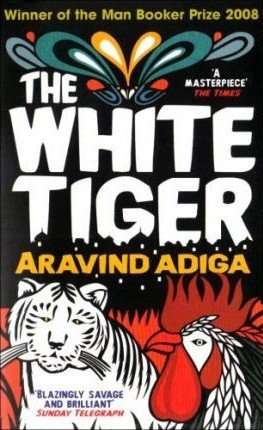THE WHITE TIGER by Aravind Adiga, Book Review
The White Tiger Synopsis

Meet Balram Halwai, the ‘White Tiger’: servant, philosopher, entrepreneur and murderer.
Balram, the White Tiger, was born in a backwater village on the River Ganges, the son of a rickshaw-puller. He works in a teashop, crushing coal and wiping tables, but nurses a dream of escape. When he learns that a rich village landlord needs a chauffeur, he takes his opportunity, and is soon on his way to Delhi behind the wheel of a Honda.
Amid the cockroaches and call-centres, the 36,000,004 gods, the slums, the shopping malls, and the crippling traffic jams, Balram learns of a new morality at the heart of a new India. Driven by desire to better himself, he comes to see how the Tiger might escape his cage…
Genre: Action-Adventure, Literature, Audio
Disclosure: If you click a link in this post we may earn a small commission to help offset our running costs.
BOOK REVIEW
I will come straight out and say it – this novel just did not work for me. Looks like I will not be on the Man Booker Prize judging panel, eh?
Why not? A couple of reasons.
The story is told through a series of letters written by Indian entrepreneur Balram Halwai, aka the ‘White Tiger‘, to the Premier of China who at the time of writing was apparently visiting India. Although initially an interesting narrative framework, I quickly found it to be tiresome. Also, for me, the undue focus on the narrators act of writing the letters made the grittier story being told in reflection seem quite farcical and the narrator somewhat unreliable.
Is that the effect Aravind Adiga intended? If so, to what end?
I am certain the reader is supposed to feel empathy for Aravind Adiga’s White Tiger who is billed as the underdog.
While relatively speaking he was the underdog, however I just could not identify or empathise with this character. Yes, he had a hard life; yes, things that happened to him were not fair – but in my world, two wrongs do not make a right. I believe the characters in general were quite pigeon-holed and assessed by the narrator in a very symbolic manner. In the world of the White Tiger, people will either help his cause or will hinder it, and if and when they fall into the latter category they are dispensable.
Again, perhaps this is what Adiga intended? If so, it reads as a scathing social commentary. And this brings me to the underlying reason this novel just did not work for me. While there will always be bad elements in societies, I believe there is always the potential for redemption. While revolutionary zeal is something I find appealing and inspiring – bitterness is not.
The White Tiger won the 2008 Man Booker Prize, and it obviously did so because it was considered avante garde. I wholeheartedly agree that this novel is very different to most others out there, and I do sincerely commend Aravind Adiga for going out on a limb with his debut novel. I just think different does not always translate to excellence and caution that going too far out on a limb sometimes just leads to one loosing their footing, and in this case their audience…
BOOK RATING: The Story 2 / 5 ; The Writing 3 / 5 — Overall 2.5
The White Tiger is available from:
About the Author, Aravind Adiga
Aravind Adiga is an Indian-born (1974) Australian journalist and author. His debut novel, The White Tiger, won the 2008 Man Booker Prize. His second novel, Last Man in Tower will be released in September 2011.
See Aravind Adiga’s official website

